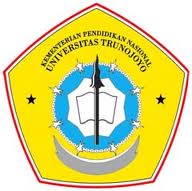Anda belum Log-in!
Silahkan Log in
Selamat Datang di Portal Digital Content Publisher
Sabtu , 08 November 2025
Perpustakaan sebagai jantung pendidikan tinggi di Indonesia, harus mampu memberi kontribusi yang berarti bagi pelaksanaan proses belajar mengajar di perguruan tinggi.
di-posting oleh 160421100036 pada 2020-08-25 07:20:10 • 513 klik
EVALUASI TINGKAT PRODUKTIVITAS MESIN ROTARY DENGAN OVERALL EQUIPMENT EFFECTIVENESS (OEE) DAN HUMAN ERROR ASSESMENT AND REDUCTION TECHNIQUE (HEART) (Studi Kasus : PT SUMBER MAS INDAH PLYWOOD)
EVALUATION OF THE PRODUCTIVITY LEVEL OF THE ROTARY MACHINE THE EFFECTIVENESS OF WHOLE EQUIPMENT (OEE) AND HUMAN ERROR ASSESSMENT AND REDUCTION TECHNIQUE(HEART) (Case Study: PT SUMBER MAS INDAH PLYWOOD)
disusun oleh ANNISA DEWI MAHARANI
| Subyek: | EVALUASI TINGKAT PRODUKTIVITAS MESIN ROTARY DENGAN OVERALL EQUIPMENT EFFECTIVENESS (OEE) DAN HUMAN ERROR ASSESMENT AND REDUCTION TECHNIQUE (HEART) |
| Kata Kunci: | OEE pareto fishbone HTA HEART |
[ Anotasi Abstrak ]
Penelitian ini bertujuan untuk mengetahui presentase Overall Equipment Effectiveness (OEE) mesin rotary di PT SMIP, mengetahui faktor yang mempengaruhi presentase OEE dan penilaian HEART pada mesin rotary PT SMIP, dan memberikan usulan perbaikan untuk meningkatkan produktivitas mesin rotary PT SMIP sesuai dengan penilaian HEART. Objek yang diamati dalam penelitian adalah mesin rotary B. nall, Aristro, dan S. Ball. Mesin rotary tersebut digunakan dalam pembuatan core dan center core pada produk plywood. OEE digunakan untuk mengevaluasi tiga faktor proses yaitu availability, performance, dan product quality sedangkan metode HEART digunakan untuk mengetahui tingkat keandalan opertaor dalam melakukan pergantian mata pisa setiap dua jam sekali. Nilai OEE dari mesin B. Nall, Aristro, dan S. Ball berturutturut pada januari 2019 adalah 10%, 19%, dan 23%. Sedangkan dengan metode HEART diperoleh nilai HEP terbesar adalah pada proses aktivitas 3 yaitu memposisikan sudut setting eagle 21° saat pergantian pisau dengan nilai HEP sebesar 0,64625. Oleh karena itu diperlukan pelatihan kepada operator sehingga dapat mengurangi cacat produk yang dihasilkan oleh mesin rotary.
Deskripsi Lain
This study aims to determine the percentage of Overall Equipment Effectiveness (OEE) of rotary machines at PT SMIP, determine the factors that influence the percentage of OEE and HEART ratings on PT SMIP rotary machines, and provide suggestions for improvements to increase the productivity of PT SMIP rotary machines in accordance with HEART ratings. The object observed in the study was the rotary engine B. nall, Aristro, and S. Ball. The rotary machine is used in making cores and center cores in plywood products. OEE is used to evaluate three process factors namely availability, performance, and product quality while the HEART method is used to determine the level of reliability of the opertaor in changing the blade every two hours. The OEE values of the B. Nall, Aristro, and S. Ball machines in January 2019 were 10%, 19%, and 23%, respectively. Whereas with the HEART method, the largest HEP value is obtained in the process of activity 3, which is to position the eagle setting angle 21 ° when changing knives with a HEP value of 0.64625. Therefore training is needed to operators so as to reduce product defects produced by rotary machines.
| Kontributor | : Dr. Weny Findiastuti, S.T., M.T. ; Rullie Annisa, S.T. M.T. |
| Tanggal tercipta | : 2020-07-23 |
| Jenis(Tipe) | : Text |
| Bentuk(Format) | |
| Bahasa | : Indonesia |
| Pengenal(Identifier) | : TRUNOJOYO-Tugas Akhir-19785 |
| No Koleksi | : 160421100036 |
Sumber :
Universitas Trunojoyo Madura
Ketentuan (Rights) :
2020
 Download File Penyerta (khusus anggota terdaftar)
Download File Penyerta (khusus anggota terdaftar) 1. TRUNOJOYO-Tugas Akhir-19785-SKRIPSI ANNISA DEWI MAHARANI PTA-1-13.pdf - 476 KB
1. TRUNOJOYO-Tugas Akhir-19785-SKRIPSI ANNISA DEWI MAHARANI PTA-1-13.pdf - 476 KB 2. TRUNOJOYO-Tugas Akhir-19785-ABSTRAK.pdf - 1705 KB
2. TRUNOJOYO-Tugas Akhir-19785-ABSTRAK.pdf - 1705 KB 3. TRUNOJOYO-Tugas Akhir-19785-CHAPTER 1.pdf - 1817 KB
3. TRUNOJOYO-Tugas Akhir-19785-CHAPTER 1.pdf - 1817 KB 4. TRUNOJOYO-Tugas Akhir-19785-CHAPTER II.pdf - 1867 KB
4. TRUNOJOYO-Tugas Akhir-19785-CHAPTER II.pdf - 1867 KB 5. TRUNOJOYO-Tugas Akhir-19785-CHAPTER III.pdf - 1909 KB
5. TRUNOJOYO-Tugas Akhir-19785-CHAPTER III.pdf - 1909 KB 6. TRUNOJOYO-Tugas Akhir-19785-CHAPTER IV.pdf - 1950 KB
6. TRUNOJOYO-Tugas Akhir-19785-CHAPTER IV.pdf - 1950 KB 7. TRUNOJOYO-Tugas Akhir-19785-CONCLUSION.pdf - 1953 KB
7. TRUNOJOYO-Tugas Akhir-19785-CONCLUSION.pdf - 1953 KB 8. TRUNOJOYO-Tugas Akhir-19785-REFERENCES.pdf - 1956 KB
8. TRUNOJOYO-Tugas Akhir-19785-REFERENCES.pdf - 1956 KB Dokumen sejenis...
Dokumen sejenis...Tidak ada !
 Dokumen yang bertautan...
Dokumen yang bertautan...Tidak ada !
 Kembali ke Daftar
Kembali ke Daftar 